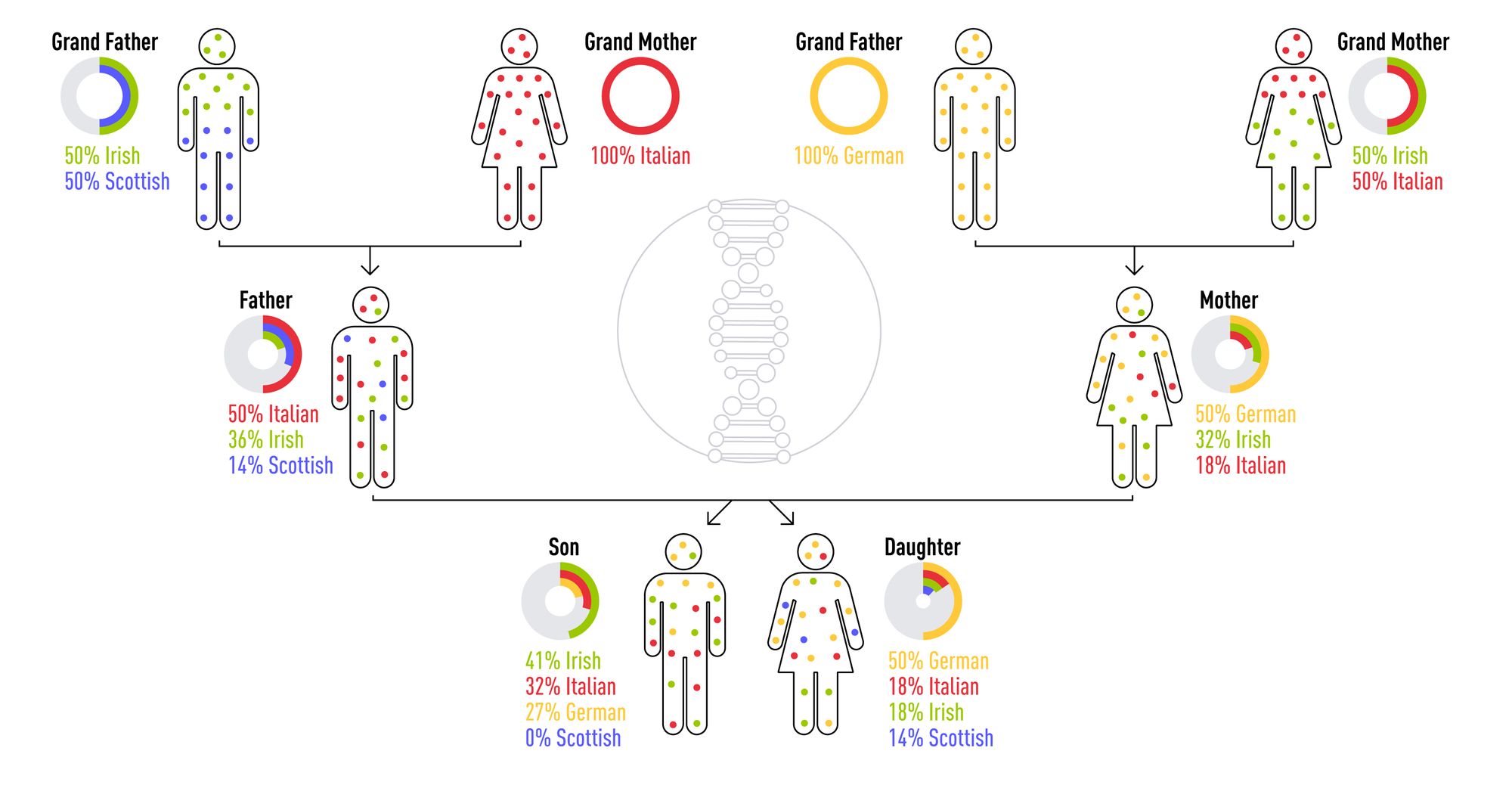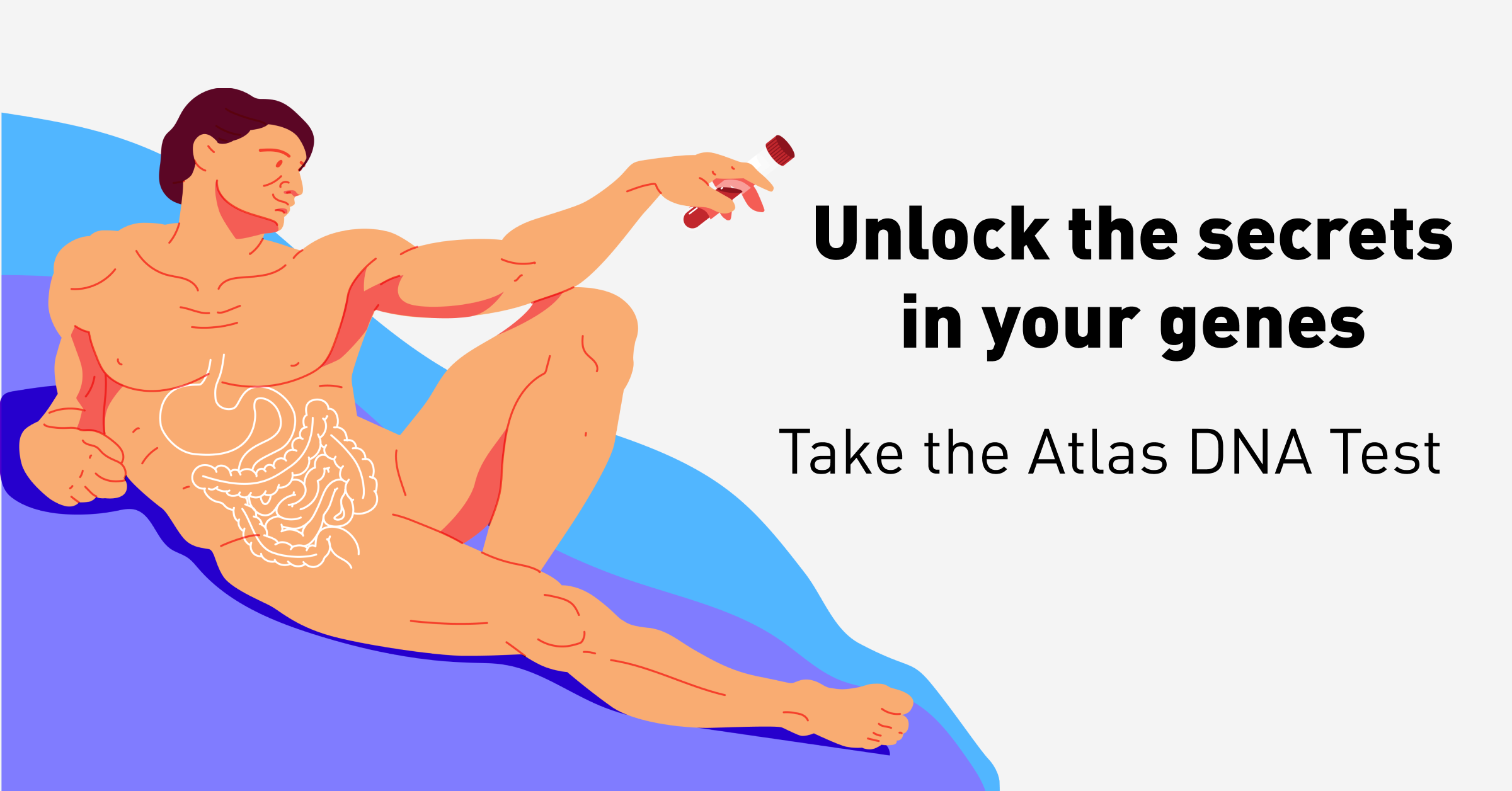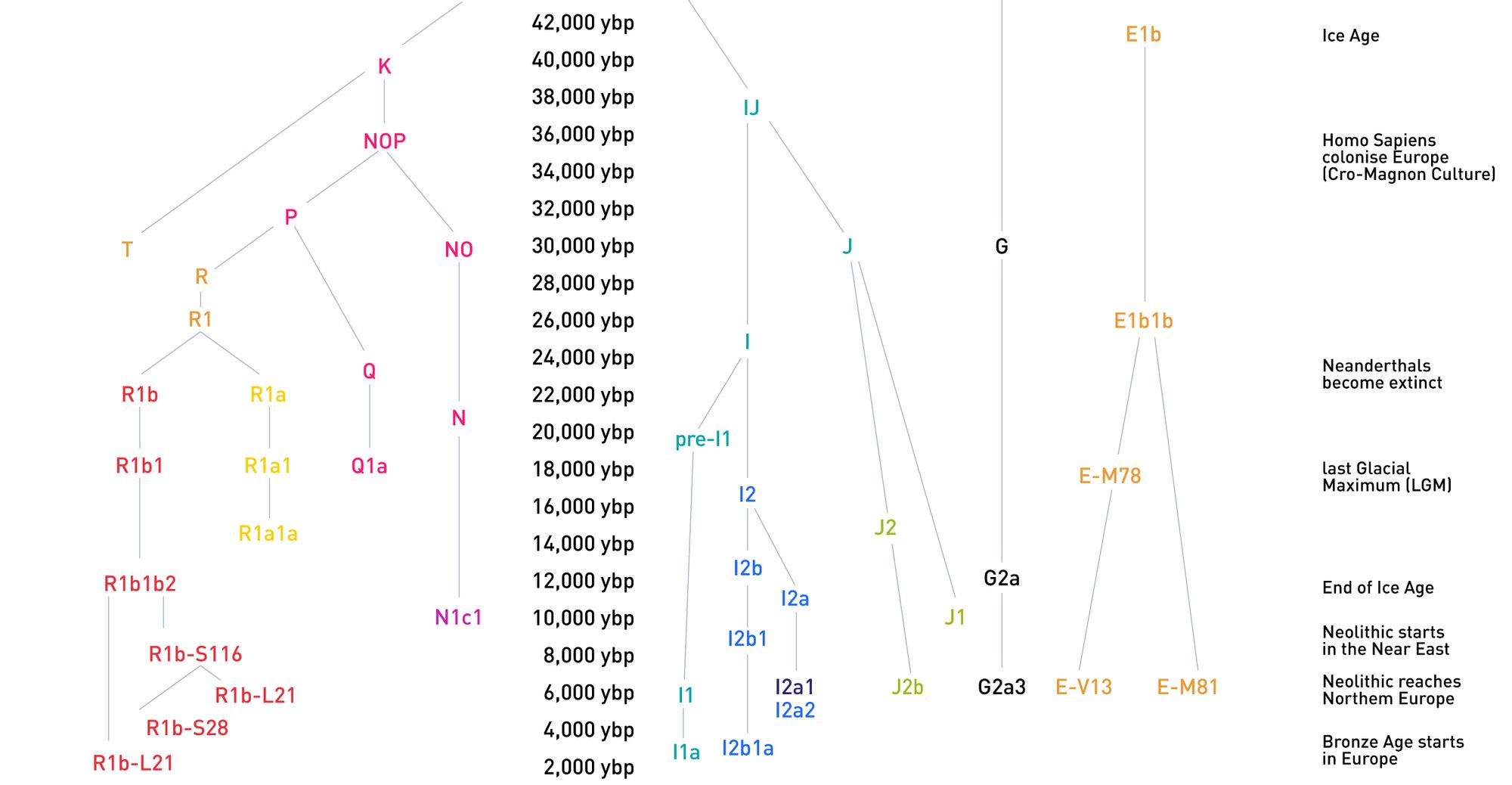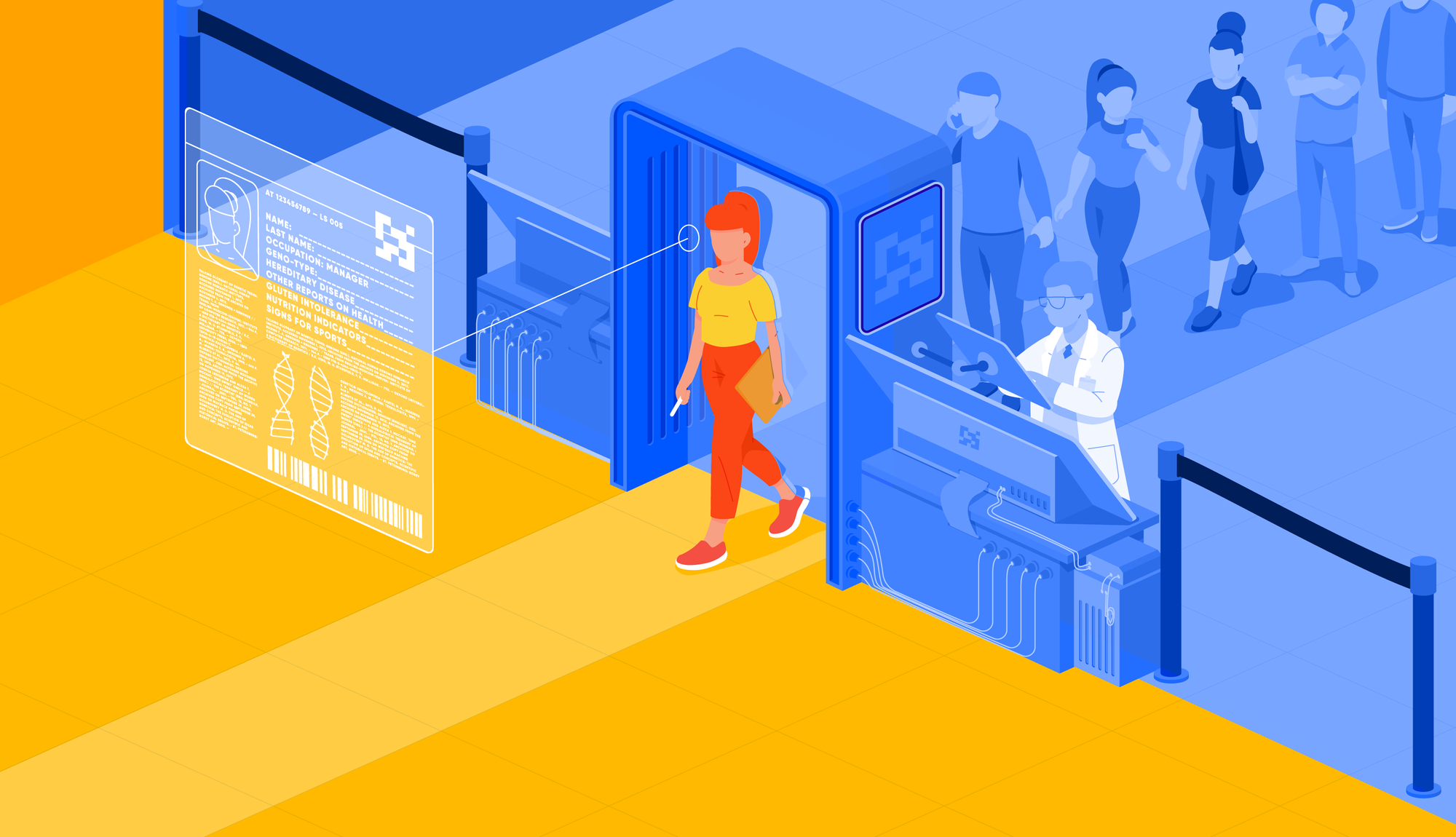Your ancestry results are getting even better. Find out what’s changed and why your results might look a little different in this article.
It’s finally happened. Our genetic ancestry experts have finally emerged from their cave after months of reading new studies and polishing the algorithm that generates your personalised results.
These sleek calculations now reflect the most recent and reliable scientific findings in this field. Here’s the rundown of changes included in this update:
- haplogroups calculations have been refined
- ancestry composition has been updated
☝️TIP☝️ Some users may notice significant variation between their current and previous results. Don’t worry, you haven’t changed – we’ve just got more data to go on.
Ancestry composition
In genetic ancestry, researchers use the term population: groups of humans that have lived in one territory for a long time and were partially isolated from others. These communities share genetic similarities.

All humans share about 99.9% of their genetic code. That means that our differences are hidden in that remaining 0.1%. For this reason, the science of genetic ancestry is no walk in the park.
This is especially true of places where populations have been mixing for a long time, like Europe. When populations have been migrating and mixing for hundreds and thousands of years, it’s harder for scientists to reliably pinpoint specific genetic traits of one population.
How ancestry composition is calculated
To find information on genetic ancestry, scientists scour the globe collecting DNA samples from representatives of different populations, analysing them, and publishing studies about their findings. They also publish studies about the best methods to evaluate this information.

Then our in-house ancestry experts scour these studies for the newest and highest quality results to include in our DNA interpretation algorithm. We also amend the algorithm when necessary to apply the best methodology for our calculations.
In this update, we strengthened our criteria for population samples selected for our interpretation. We have temporarily removed populations for which there is insufficient data and samples that merge with others. When more research is published with more definite findings, we will return them to the algorithm.
☝️TIP☝️When we update our algorithm, we update your results so you can discover more about yourself too (and perhaps learn a bit more about the science too).
Haplogroups
Haplogroups are made up of people with shared genetic variations in the Y chromosome and mitochondrial DNA. Each haplogroup has an identifier code that starts with a capital letter, followed by an alternating sequence of numbers and lowercase letters, which indicate the specific subclades of the main haplogroup (e.g., R1b1).
How haplogroups are calculated
To clarify the relationships between haplogroups and subclades, scientists use a haplogroup tree where each gene variant is assigned a specific node and a value (YBP — years before present). In this tree, variants that appear with the least frequency have the greatest weight and vice versa.

To calculate each user's haplogroup, the algorithm follows the path of haplogroups starting at the root and calculates the total value of identified gene variants. The user’s haplogroup is the last result in the tree (furthest from the root).
In this update, we integrated the newest maternal and paternal haplogroup trees published by the International Society for Genetic Genealogy (ISOGG). Now your results reflect the most recent findings on haplogroups and the migrations of your ancient ancestors.

















